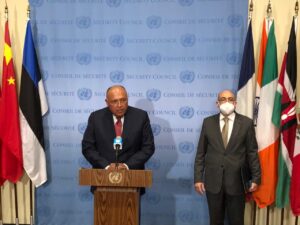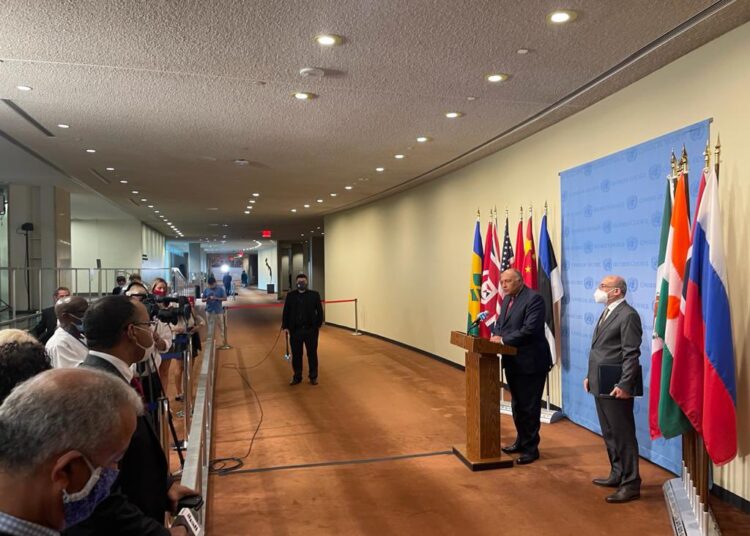NEW YORK – Egyptian Foreign Minister Sameh Shoukry asked the UN Security Council (UNSC) to shoulder its responsibility and work on resuming talks on the Grand Ethiopian Renaissance Dam (GERD) under the sponsorship of the African Union till reaching out a binding deal that meets the needs of the three countries, Egypt, Sudan and Ethiopia, and defuse tension in the region and Africa.
At a press conference following the UNSC session on GERD at the request of Egypt and Sudan, Shoukry said the unilateral action taken by Ethiopia to start the second filling of the dam without agreement with the upstream countries is representing an “existential” threat to the sovereignty of Sudan and Egypt where more than 150 million persons are living.
Shoukry said Egypt is looking forward to working with the UNSC to fulfill its diplomatic responsibility in affirmation of the statements of the 15 member-states of the UN on the necessity of reviving the negotiation track intensively under the supervision of the African Union.
He said “We did not feel the intention of any party to settle the issue. We know that there are some differences on the techniques and practices, but Ethiopia did not show any political resolve to reach a deal, which is a key hurdle towards reaching an agreement despite the resilience of both Egypt and Sudan.

Foreign Minister Sameh Shoukry said that all measures taken by Ethiopia over the past 10 years leaned against claims of “injustice”, a matter which is baseless, in order to avert entering a binding agreement.
“Egypt acknowledged Ethiopia’s right to benefit from the dam, but it has called for its interests and water security to be protected from potential damage in case of irresponsible filling and operation of the dam,” he told the press conference.
“Egypt will continue inviting the brothers in Ethiopia to commit to international law rules and norms,” he stressed.
“This intransigence and vicious circles of endless negotiations cannot go on indefinitely, and any upcoming round of negotiations should take place under a timeframe and with an active role of observers,” he said






Discussion about this post